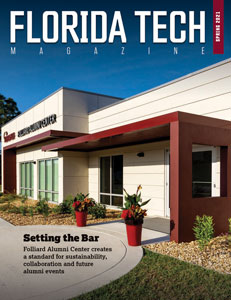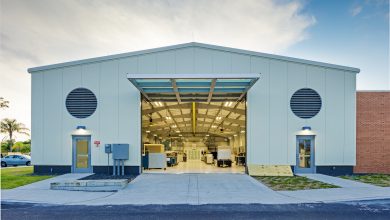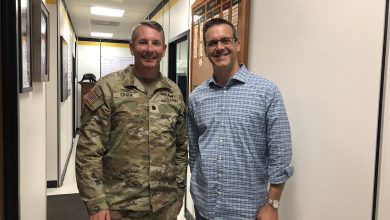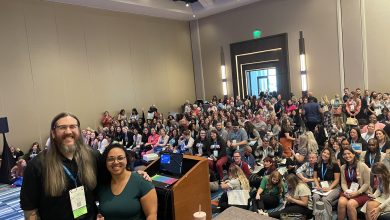Molecular Biology Alumna Helps Develop Ebola Virus Rapid Test
Early detection of any illness is key to effective treatment, and that’s what makes biomedical researchers around the world lifesavers. Krystle Agans ’05 is a life-saving Panther who recently helped develop a new rapid test for the Ebola virus, using the D4 assay, that someday could make the difference in whether a patient is treated in time or not.
Agans is a biocontainment research associate III at the University of Texas Medical Branch (UTMB) in Galveston, Texas. Working alongside teams from UTMB, Duke University and the Galveston National Laboratory, Agans performed the testing of Ebola samples and the RT-PCR testing—the industry’s current gold standard—used as a comparative method of detection. She also developed the experimental design for validation of the device.
“Currently used RT-PCR requires cold storage, excessive sample manipulation and up to six days for results. The D4 can give results in about 30 minutes and can detect the virus 24 hours earlier than RT-PCR,” which has a considerable impact on tracking, containing and treating possible infected contacts, Agans says. “The device is also small, easy to use and could be applied in the field with limited power and resources.”
Agans says she is passionate about her work because she has seen how emerging infectious diseases can tear a community apart, wreak havoc on medical professionals and terrorize the world.
“The 2014 outbreak reinforced that we need more advanced methods of detection for an entity that clearly has the upper hand from an evolutionary standpoint.”
The lab setting at Florida Tech taught skills that some never achieve through school or a professional setting, due to the intimacy of the smaller classes and professor involvement, which has directly impacted my ability to lead and understand complex experiments.
Krystle Agans ’05, biocontainment research associate, UTMB
She began working at UTMB after years of experience under her belt working with monkeypox, avian influenza, anthrax, tularemia and plague at the Battle Memorial Institute in Columbus, Ohio, and the Lovelace Respiratory Research Institute in Albuquerque, New Mexico.
But she credits her molecular biology degree from Florida Tech for influencing employers to hire her.
“The lab setting at Florida Tech taught skills that some never achieve through school or a professional setting, due to the intimacy of the smaller classes and professor involvement, which has directly impacted my ability to lead and understand complex experiments.”
Q&A
Quarantine activity: N/A; We did COVID-19 research during the pandemic.
Pets: A dog named Roxy, a spunky Dalmatian-whippet mix
Your happy place: The pool or the beach
Alternate career: Chef
Favorite Florida Tech memory: Melbourne Beach volleyball
This piece was featured in the spring 2021 edition of Florida Tech Magazine.






